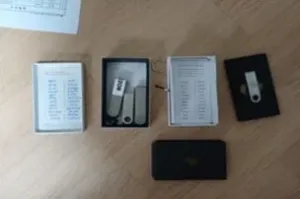The blunder was likely due to the authorities' lack of knowledge about cryptocurrency. The move was somewhat akin to authorities publicly posting a username and password for a criminal's bank account — though that would likely be an easier mistake to unwind.
Crypto stolen from Korean authorities after they post wallet seed phrase
- "$4.8M in crypto stolen after Korean tax agency exposes wallet seed", Bleeping Computer [archive]
YieldBlox lending pool drained of $10.2 million
The attacker was able to manipulate the oracle price to show that USTRY was priced at $100 (rather than its actual trading price of around $1.05). Then, they borrowed against the overvalued asset, withdrawing XLM and USDC priced at $10.2 million. However, around 48 million of the stolen XLM (~$7.2 million) were frozen.
IoTeX bridge exploited for $2 million after private key compromise
Blockchain security researcher Specter has suggested there may be links between this attack and a $50 million theft from the Infini "stablecoin neobank" a year ago.
South Korean prosecutors lose $22 million of seized crypto to the wallet inspector, later recover it
On February 19, the office announced they had recovered the stolen assets and identified the thief.
Moonwell lending protocol suffers $1.78 million loss after second oracle misconfiguration in four months
This is the second time Moonwell has suffered a loss thanks to an oracle misconfiguration. In November 2025, the platform was left with almost $3.7 million in bad debt after a different asset was mispriced.
Although the vulnerable pull requests were at least partially developed by an AI tool, the security auditor who initially attributed the vulnerability to Claude Opus 4.6 later softened his criticism, noting that even senior developers could have made the same mistake. He did, however, criticize the project for a lack of sufficiently rigorous testing that should have caught the issue.
CrossCurve users exploited for around $3 million
CrossCurve took a conciliatory tone in on-chain messages sent to the thief, writing, "These tokens were wrongfully taken from users due to a smart contract exploit. We do not believe this was intentional on your part, and there is no indication of malicious intent." (Who among us hasn't accidentally stolen millions of dollars?) However, they warned, they planned to escalate to working with law enforcement and blockchain security firms to investigate and prosecute the theft if the funds were not returned within 72 hours.
$29 million stolen from from Step Finance treasury wallets
Aperture Finance users lose at least $3.4 million
Aperture has said they disabled portions of their web app impacted by the bug, and are working to try to trace and recover stolen funds.
$13.43 million stolen from Matcha Meta users in SwapNet exploit
Most of the lost funds came from a single user, who lost $13.34 million in assets. Other users lost a combined $90,000.
- "SwapNet Incident Post Mortem", Matcha Meta
Saga halts blockchain after $7 million theft
The Saga Dollar token lost its peg and fell to around $0.75 after the attack.










